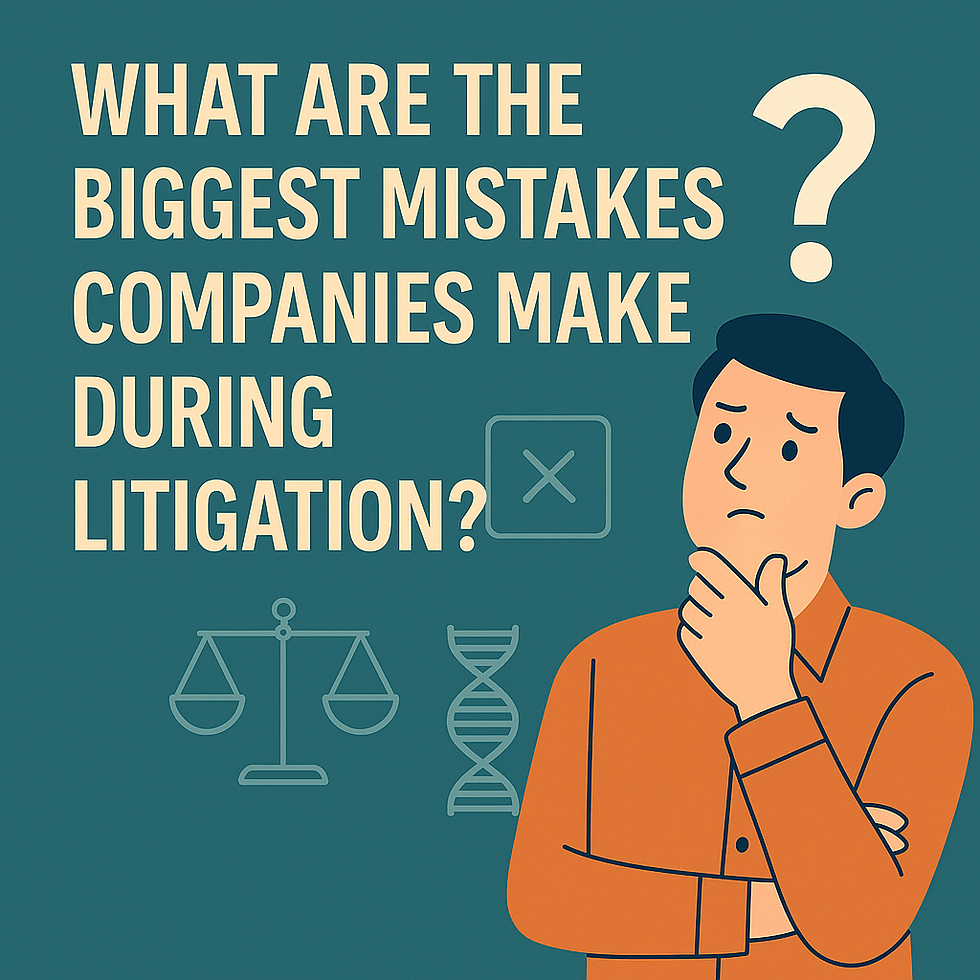Insurance Recovery Challenges Every Business Owner Should Know
- Dennis Sapien-Pangindian
- Oct 1, 2025
- 2 min read

When disaster strikes—whether it’s property damage, a lawsuit, or a business interruption—many business owners turn to their insurance policies expecting protection. But recovering money from an insurance claim isn’t always simple. Legal issues can quickly arise that delay or even block recovery.
Here’s what business owners should know about the most common legal issues in insurance recovery, and how to prepare for them.
1. Policy Interpretation
Insurance policies are often written in dense, technical language. Disputes commonly arise over what the policy actually covers.
Coverage disputes: Insurers may argue that your specific loss isn’t covered.
Exclusions: Policies often have long lists of situations where coverage doesn’t apply.
Ambiguity: If terms are unclear, courts often interpret them in favor of the insured—but that doesn’t stop insurers from pushing back.
2. Notice Requirements
Most policies require you to notify the insurer of a loss promptly. If you delay:
The insurer may argue you forfeited coverage.
Legal fights often turn on whether notice was “reasonable.”
Strict compliance is safest—report losses immediately.
3. Duty to Cooperate
After filing a claim, policyholders are usually required to cooperate with the insurer’s investigation. This may include:
Providing documents and records.
Sitting for examinations under oath.
Allowing inspections of damaged property.
Failure to cooperate can give the insurer grounds to deny coverage. At the same time, businesses need to balance cooperation with protecting privileged or sensitive information.
4. Valuation of Loss
Even when coverage applies, disputes often arise over how much the insurer must pay.
Property claims: Is the payout based on replacement cost or actual cash value?
Business interruption: How do you measure lost profits, and over what period of time?
Deductibles and sub-limits: These can drastically reduce what’s actually recovered.
5. Bad Faith by Insurers
Sometimes insurers unreasonably delay, underpay, or deny valid claims. This is known as bad faith. In many states, policyholders can sue for bad faith, potentially recovering extra damages beyond the policy limits.
6. Litigation and Arbitration
If negotiations fail, disputes may move to:
Litigation: Traditional court battles.
Arbitration: Some policies require binding arbitration instead of court.
Mediation: A less formal, often faster route to settlement.
Each path carries different costs, timelines, and strategic considerations.
Practical Example
Imagine a restaurant suffers fire damage. The insurer agrees to cover repairs but disputes the restaurant’s claim for six months of lost profits. The insurer insists only three months are recoverable. The disagreement may lead to mediation, arbitration, or litigation to determine the proper recovery.
Final Thought
Insurance is supposed to provide peace of mind—but legal issues often complicate recovery. From policy interpretation to valuation disputes and allegations of bad faith, business owners need to be proactive, organized, and strategic when pursuing claims.
The best approach: know your policy, document your losses, and seek legal guidance early. Doing so can mean the difference between a denied claim and a fair recovery.
This blog is for informational purposes only and not legal advice. If you’re dealing with an insurance claim, consult with experienced counsel to protect your rights and maximize recovery.




Comments